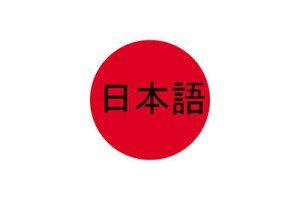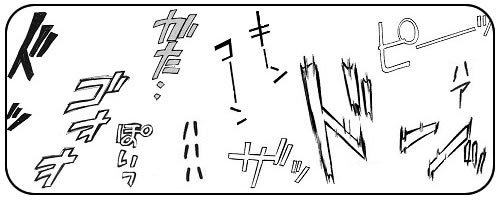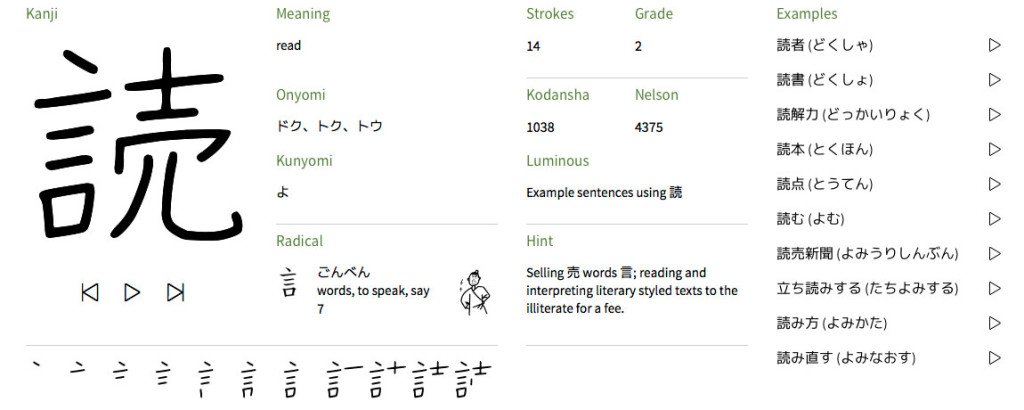
Learn the 3 now japanese writing systems used!
Well, if you're here, it's because you want to learn Japanese language and therefore he is somehow wondering, ?Where do I start?.
Well, how about we give it a little push?
The Japanese language consists of three Japanese writing systems (Japanese alphabet), hiragana (????), katakana (????) and kanji (??).
Article Summary
hiragana
katakana
kanji
Hiragana Japanese writing system (?????
O hiragana it is the first writing system that Japanese people use when they are learning the language in schools.
With it, you can write ALL words of Japanese origin, without exception. We can think of hiragana as a syllabic alphabet, to which we add a few syllables to form a word.
Example:
? ? ? ??????Egg
? ? ?????Window
Assuming you can write everything with hiragana, then why don't we just use hiragana to write?
Well, because that's how the language is. We simply accept the language as it is.
The most frequent question of self-taught students is: “But there are words that cannot be written with hiragana. How do I do it then?”
Katakana writing system (?????
In fact, there are words that cannot be written with hiragana, these are foreign words and onomatopoeias.
Let's try to explain.
The word gas comes from the English meaning gasoline. This, of course, is not something that existed in Japan before foreigners arrived there, so what did they do?
Like hiragana, katakana was created as a more simplified way of writing and reading Japanese.
Thus, children's learning would be faster, if they started with these systems and only later went on to study kanji.
As many strange sounds were completely out of place within the japanese language, then this separation was made between hiragana and katakana, and still being created some more phonetic sounds in this second one, so that it could support different sounds coming from foreign languages.
Thus were created some sounds like: o ?? (saw), ?? (ti) and among others. If we take the Portuguese language, for example, there are many people who have a huge difficulty in making th sound of the English language. Therefore, we were able to understand well why the Japanese need another writing system for these words.
A few words in katakana:
? ??Bus (Bus)
? ? ? ?= Brazil
And another application of the katakana alphabet is onomatopoeias.
The famous hits, stomps, punches, kicks, slips, among others that we see in manga and the like.
It is also widely used for these purposes such as:
?? ?? (don don) = Someone knocking at the door
? ? ? (ha ha ha) = laugh

This is the basic of these two syllabaries, anything that escapes from that, you can consider as: "There is nothing to do, if the Japanese do, the way is to accept!"
For example, the fact that Japanese people have a word in their own language, but prefer to use it with a foreign origin.
Example:
In Japanese the word used for milk is ????(gyunyu), but some Japanese (usually younger) prefer ?Americanize? and say ???(miruku) or milk.
See it doesn't make sense?
You won't pull a fight with a Japanese telling them to stop speaking miruku, just because they have a word in their own language to say it. It's no use! Incorporating words from other languages is almost unstoppable in today's society.
The way is to learn that they are spoken in both ways and when you listen to them, know that they are the same thing.
And finally, to finish the katakana.
You will see words of Japanese origin written in katakana in some very specific cases, like to emphasize something.
Let's say a newspaper breaks the news of a terrible death and they want to emphasize the word ?? (shinu) which is death. So they write it how?? (shinu).
It's not entirely unusual. In fact, it happens a lot on the news and signs of establishments that want to draw your attention to a special dish or something they are selling, or even "do not enter, danger" warnings.
?But how am I supposed to know when a Japanese word is written in katakana??
Once again, there is nothing to be done. Open your mind and let the content in and when you least expect it, you'll read it all as one thing.
Kanji writing system????
Finally, the most anticipated, the Kanji.
There are studies that indicate that there may be more than 10,000 kanji.
But don't despair!
There is one list called Joyou Kanji, where the most used kanji in everyday life are listed. This list contains about 1945 kanji that are approved by the Ministry of Education and are taught in Japanese schools.
With this base of kanji, you can read a newspaper in peace.
Yes, it's a lot, but it has improved a lot, right?
Any kanji that fall outside of this list, meaning the numberless ones that are left to hit 10,000, are commonly used furigana.
That is, on top of kanji it is used in hiragana with phonetic reading so that the person does not get lost.
Yes, Japanese people have that concern, so don't worry about the other 8,000 kanji, as no Japanese really memorize all 10,000, they will also need a helping hand.
It is good to emphasize that the Kanji do not represent just words, but ideas and concepts as well.
I meet a lot of people who want to know the meaning of this or that kanji and when you don't know how to explain it satisfactorily, you run the risk of the person thinking you don't know any Japanese.
So, don't pay attention to the exact translation of each kanji, there is not always an equivalent word for Portuguese for a given kanji.
It will not always be possible. It is best to always keep an open mind about it and when you have an equivalent word like ??? (eating), great.
But when you don't, try to broaden your mind to find the best way to try to get this into your language without much getting lost in the process.
Sometimes you will need an entire sentence in Portuguese to be able to define a single kanji, and other times, the opposite.
And the last question.
Yes, the text got long.
?Each kanji has different types of reading, what do I do to memorize them all??
Okay, let's remember that the internet is very good at confusing people's heads. Especially when it comes to tables.
So, we can find several scattered around the internet with just one kanji and dozens of readings.
If you stick to memorizing them all, you won't be able to memorize more than 200 or 300 kanji, but if you try hard to understand words and phrases it will be much easier.
Let me give you a personal example.
In one day I discovered that:
??? (tsumetai) is cold.
In another, I found that:
?? (he reiterated) it's freezing.
In another, I found that:
??? (reizouko) is a refrigerator.
Note that each one, whether or not it has a different kanji, in some cases, has a slightly different reading. All are with this kanji?.
Now if you ask me, what does this kanji mean by itself. Well, I confess that I will have to do some research to answer you.
But does it really matter?
I mean I know three words with him. And if by any chance I see it being used in some other word, from the general context of what the other words it is used to are, I can deduce its meaning.
And that's how it follows gradually with kanji, which in many language schools is treated as a villain, where the person sometimes spends hours and hours to learn just one, and forget about it in a few minutes.
Good studies and see you later!
